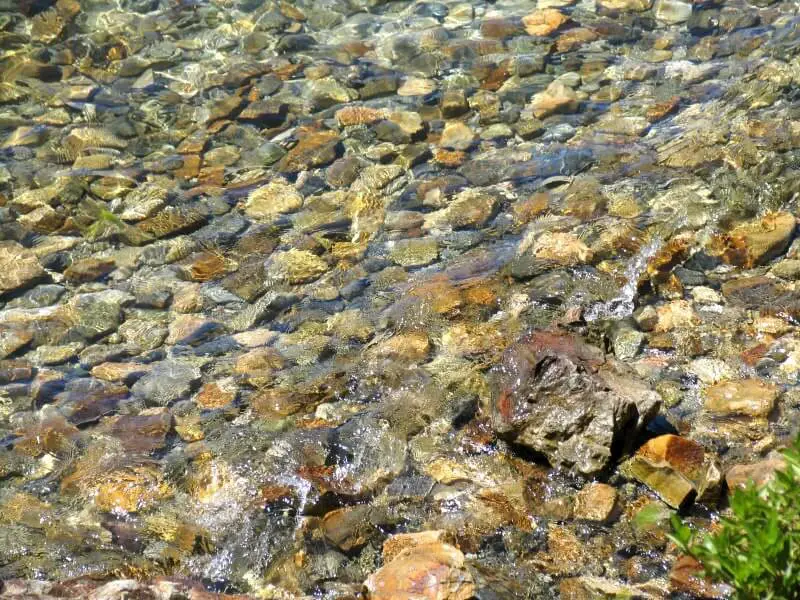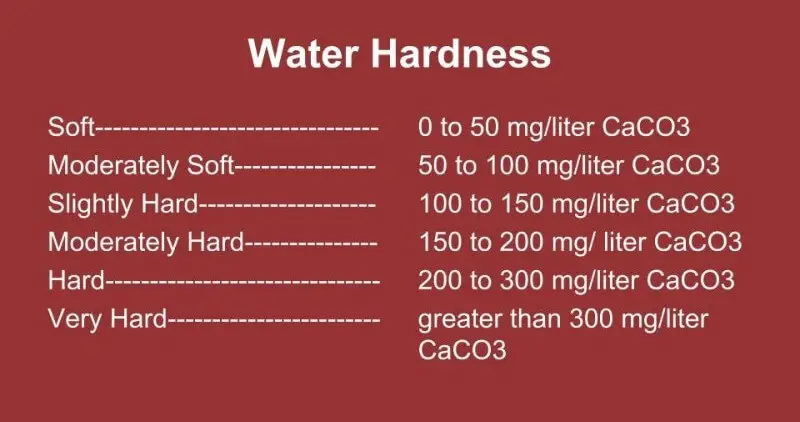
Anyone who has fallen while waterskiing, or has made a gentle sitzmark in deep powder snow skiing knows water can be physically hard or quite soft. The hardness of water that concerns wet shavers, refers to the dissolved mineral content in the water. Hard water is high in dissolved magnesium and calcium, while soft water has low levels. To see if your water is hard look at your plumbing fixtures. If they collect “scale” a white mineral deposit you have hard water.
Water Hardness
Chemistry
Soap is the sodium (or potassium) salt of a long chain fatty acid, the result of the saponification reaction. Both sodium, and potassium are mono-valent (+1 or – 1 charged), ions and allow soap to mix with water. Hard water contains magnesium and calcium which are divalent ions (+2 charge). These Mg and Ca ions in the mix result from groundwater flowing through minerals like gypsum, dolomite, and limestone, and dissolving those minerals which contain these salts of calcium and magnesium. Mixing Ca and Mg with soap yield the calcium and magnesium salt of the fatty acid= soap scum. It is insoluble in water, useless for shaving, and signifies hard water. These minerals essentially hijack the soap and turn it to useless scum.
Soap is a surfactant (surface active agent). It is a foaming surfactant which is allows lather. All soaps are surfactants, but not all surfactants are soaps. Detergents are surfactants, but I do not recommend their use for shaving as they strip oil from the skin.
Physics
Soap lowers the surface tension of water. If you carefully place a double edge razor blade in a beaker of water so that the blade lies parallel to the water’s surface, the blade will float. Add a drop of liquid soap and the blade will flutter to the bottom. Soap makes water “wetter.”
Water may be treatably hard, affected by pH and temperature, or may have untreatable hardness, characterized by the presence of sulfide salts of Mg and Ca.
What is crucial to building great lather is the presence of FREE water. That is water not tied up keeping other things in solution. This is the reason water is better to drink than soft drinks when you are thirsty. They have much less free water, due to colorings and flavorants, and provide less of the water your body needs per volume of soft drink. Treating water for hardness only drives these minerals back into solution. There is some increase in free water by doing this, which will improve the lather somewhat.
Treating your hard water with citrate only converts your water to a saturated, from supersaturated solution, still not great for lathering. You need distilled water for a real lather.
By L.M. Isaacs, MD.


Really great post, Thank you for sharing this knowledge. Excellently written article, if only all bloggers offered the same level of content as you, the internet would be a much better place. Please keep it up!..
Here is some information about water hardness: Many industrial and domestic water users are concerned about the hardness of their water. Hard water requires more soap and synthetic detergents for home laundry and washing, and contributes to scaling in boilers and industrial equipment. Hardness is caused by compounds of calcium and magnesium, and by a variety of other metals. Water is an excellent solvent and readily dissolves minerals it comes in contact with. As water moves through soil and rock, it dissolves very small amounts of minerals and holds them in solution. Calcium and magnesium dissolved in water are the two most common minerals that make water “hard.”
The hardness of water is referred to by three types of measurements: grains per gallon, milligrams per liter (mg/L), or parts per million (ppm). Typically, the water produced by Fairfax Water is considered “moderately hard” to “hard.”
Hope it help
I`ve really never thought about this at all. Now I am going to make sure I go and get some distilled water to create lather from now on. Can’t wait to see the results because the water here I know for a fact is not even close in terms of hardness!
There was a thread about this on a UK based shaving forum. One of the thoughts had been that Mitchell’s Wool Fat soap was very difficult to lather with hard water.
One member who finds MWF very easy to lather lives in a soft water area and had a bottle of very hard water (+300) sent to him. He tried it out and found that he could produce a very good MWF lather – he even bought a fresh puck of soap to ensure it wasn’t “contaminated” with soft water.
His opinion was that the amount of water and how often it was added was by far the biggest factor.
Not a laboratory conditions experiment by any means but it did show that it can be difficult to pinpoint where a lather is going wrong when there are variables such as technique, amount of loading/water or just the brush.
Very interesting article. I imagine this could effect the longevity of your razors as well as cause irritation to some people. Maybe I should buy a kit to check my water.
Random USA Tap Water Hardness
Walnut Grove CA 70
Monterey CA 177
Austin TX 98
NYC 20
LA 120-360
Hibbing MN 225 hardness independent of Iron which does not form soap scum.
Phoenix, AZ 200-300
I’ve been classic wet shaving for over 5 years now and learned early on that distilled water is the way to go for making any shaving soap or cream work for me. Good article.
Distilled is as soft as water gets short of distilled/deionized water.
Treating water, or increasing the product to water ratio help overcome dissolved mineral, but the softer the water the easier the lather
I have only slightly hard well water, but I drink and lather with distilled water because…I want the best lather I can get. We are talking about shaving right?
Comments are closed.